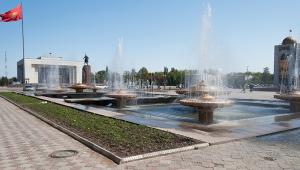Istvan Szabolcs Fazakas, the member of the European Court of Auditors responsible for the report, told PF International that many of the “very considerable shortcomings” identified could be attributed to a lack of commitment from national authorities. However, he said the commission could do more to ensure effectiveness.
The auditors examined pre-accession assistance the commission provided to countries in the region in the areas of rule of law and public administration. This included PFM, tax collection, budgeting, procurement and statistics, from 2007-13, but also took into account the first stages of the 2014-20 period.
Altogether Albania, Bosnia and Herzegovina, Kosovo, Macedonia, Montenegro and Serbia received €5.1bn up until 2014, around a quarter of which went towards the areas assessed by the ECA. The remainder would have gone towards regional development, including transport, environment and economy, human resources, and rural development.
The current European Commission president, Jean-Claude Juncker, has said there will be no enlargement of the EU before his term ends in 2020. But Fazakas said that the ECA does not see the region as on track for integration even then, with the areas of rule of law and public administration especially lacking.
Auditors highlighted that there had been relatively little funding supplied in key rule of law areas such as public prosecution (1%) or media freedom and civil society (0.5%).
Similarly, only scant support had been provided towards the fight against corruption and organised crime (0.5%), despite these being prevalent throughout the Western Balkans.
“By 2020 or so, all countries should beat or match the criteria for being a partner of the EU from the point of rule of law and public administration. That should be the main goal of the commission in the future,” Fazakas said.
He encouraged a shift of focus away from connectivity projects, such as roads, and ensuring good governance on individual, EU-funded projects.
Rather, these should be understood as a “learning process”, so that the principles of good governance, public procurement and anti-corruption are applied on projects throughout the region, including those not tied to EU funds.
The ECA also urged the commission to use the tools at its disposal to ensure the support is more effective and consistent.
These include the option to reduce or withdraw funding if conditions are not met and designing programmes with more specific objectives and measurable targets. A European Commission spokesman said it had introduced measures based on these recommendations.
The spokesman added that the commission regularly opens political and policy dialogue to improve the commiment of national authorities, which Fazakas emphasised as a key tool that the commission must make better use of.
Without this, Fazakas said the commission would continue to see the issues that arose with the Serbian court of auditors, which was formerly established but lacked the staff, the budget, or the mandate to operate.
The painstaking process of implementing necessary reforms seems to have sapped many countries’ enthusiasm for integration, resulting in concerns over ‘enlargement fatigue’. Faltering confidence in the union and the delay and reduced focus on enlargement under the Juncker commission have likely exacerbated the phenomenon.














